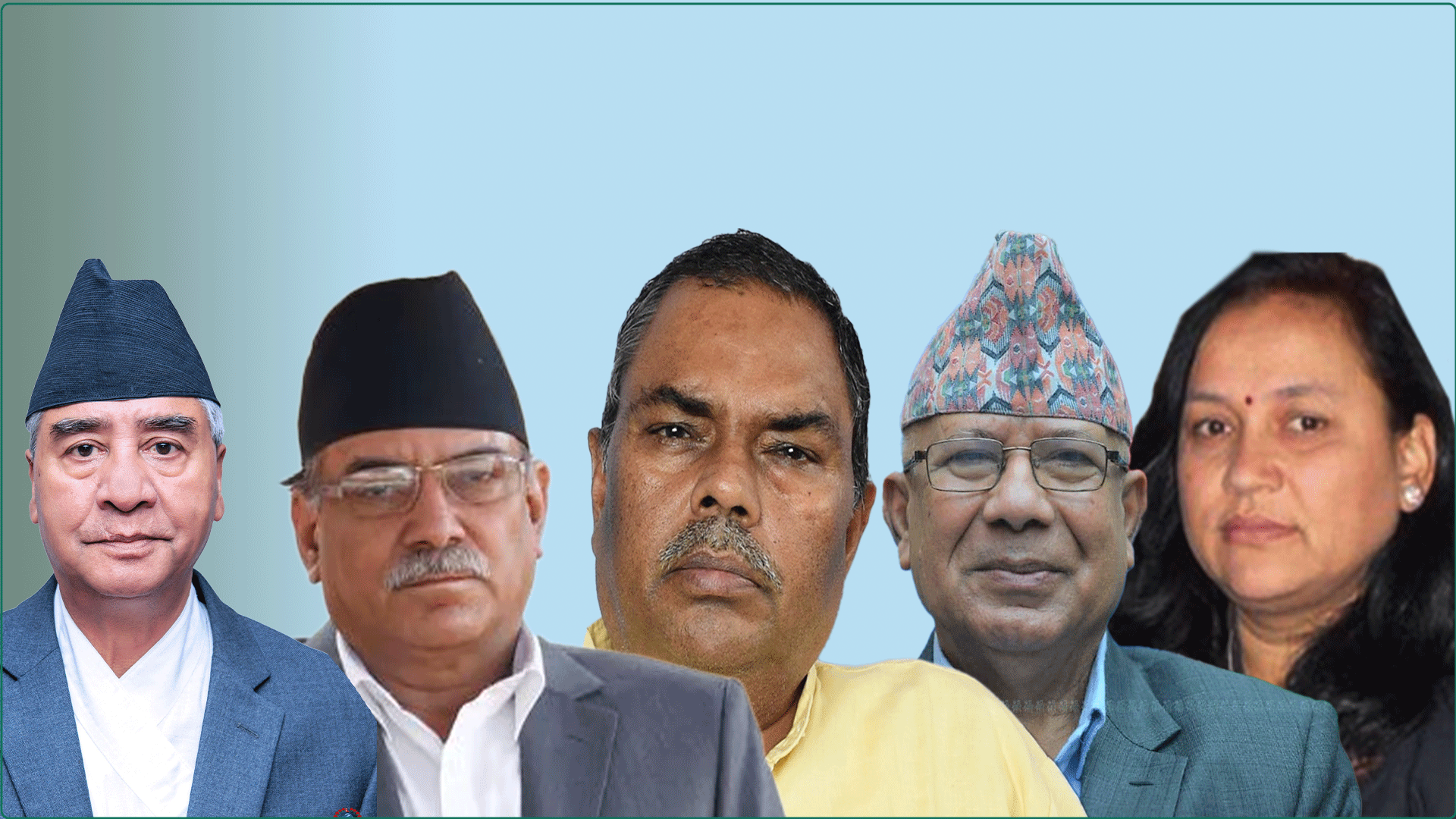The ruling coalition has started discussion for sharing of seats in the provincial and federal elections to be held on November 20.
Coalition leaders have said that sharing of seats will be decided on the basis of the recent two elections—the local election held this year and the last general election held in 2017.
CPN (Maoist Center) and CPN (Unified Socialist) stress that the seats won in the last general election should also be considered which is natural as Maoist Center had allied with CPN-UML while Unified Socialist—formed after split in UML last year—had benefitted from the electoral alliance of the two big left parties five years back.
They, therefore, are arguing that seats should not be shared merely on the basis of popular votes and a few seats should be decided on the basis of agreement among the parties.
We will take a look at what would be legitimate claim of the coalition partners in sharing of House of Representatives (HoR) seats on the basis of the votes received in the recent local election and the last general election.
NC received 34.2 percent of the total votes, Maoist Center 13 percent, Janata Samajwadi Party (JSP) 5, Unified Socialist 3.66 and Rastriya Janamorcha 0.35 percent if we take the votes received by their respective candidates for ward chair across the country in the recent local election.
The votes secured by the coalition partners in this way was 56.2 percent of the total votes cast in the local election. If we take this 56.2 percent as 100 percent, NC received 60.8 percent of the total votes secured by the ruling coalition, Maoist Center 23.1 percent, JSP 8.9, Unified Socialist 6.5 and Rastriya Janamorcha 0.62 percent.
NC, in this way, can stake claim for candidacy in 100 of the total 165 HoR constituencies. Similarly, Maoist Center would get candidates in 38 seats, JSP 15, Unified Socialist 11 and Rastriya Janamorcha one.
Now, let’s look at the votes secured by the parties in the last general election in 2017 in the proportional representation (PR) electoral system. Unified Socialist was part of UML then.
There has been very little change in the votes secured by the parties in the coalition in the general election in 2017 and the recent local election. NC’s vote increased by around one percentage point in the recent local election while that of Maoist Center has fallen by less than a percentage point. JSP’s has increased by a smaller proportion than that while Rastriya Janamorcha has also fallen negligibly. It would, therefore, be logical to assume that Unified Socialist would have received similar proportion of the votes it received in the recent local election had it contested in the general election in 2017.
NC received 33.2 percent of the total votes, Maoist Center 13.77 percent, the then Federal Socialist Forum Nepal (largely JSP now) 4.93, and Rastriya Janamorcha 0.70 percent in 2017. The votes secured by the coalition partners in this way was 56.3 percent of the total votes cast in the federal election in 2017 if we assume that Unified Socialist would have received 3.66 percent like it did in the recent local election.
If we take this 56.3 percent as 100 percent, NC received 59 percent of the total votes secured by the ruling coalition, Maoist Center 24.5 percent, JSP 8.8, Unified Socialist 6.5 and Rastriya Janamorcha 1.2 percent.
NC, in this way, can stake claim for candidacy in 97 of the total 165 HoR constituencies. Similarly, Maoist Center would get candidates in 40 seats, JSP 15, Unified Socialist 11 and Rastriya Janamorcha two.
There is not much difference in the claims for HoR seats on the basis of votes received in the general election in 2017 and the recent local election as seen above.
The parties in this way will agree on sharing of seats around the votes they received in the last two elections. NC will be under pressure to give away a few seats as it will get to lead the post-election government if the coalition gets majority.
“But there is not much space for even such pressure. Coalition partners won’t gain much if they bargain and get to field candidates in constituencies where NC is ahead by a large margin. It will be difficult for them to win,” an NC leader in the 11-strong task force formed by the coalition to decide sharing of seats argues.
NC leader Minendra Rizal claims that NC alone received more votes than the other four parties in the coalition combined in 122 out of 165 constituencies in the recent local election. “We won’t say we should get to field candidate in all those 122 seats even if we are ahead there. The main thing is who wins if the parties in the coalition give away seats to other parties,” Rizal adds. “We all will be harmed if there is undue contention within the coalition for seat sharing and the seat is finally won by UML.”
He reveals that NC will not bargain demanding a certain number of seats but would pay attention in sharing of seats to ensure that common coalition candidate win in as many seats as possible.

